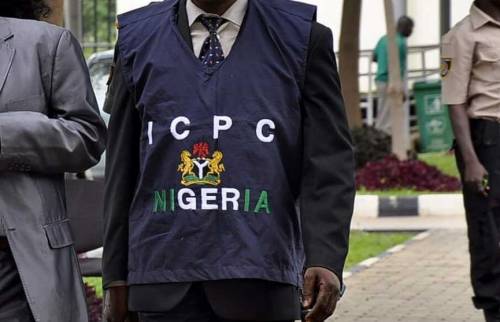The Independent Corrupt Practices and Other Related Offences Commission (ICPC) has initiated legal proceedings against Awuawe Clement, the former Registrar of the Benue State School of Health Technology in Agasha, on allegations of admission racketeering. The charges stem from Clement’s alleged involvement in the collection and misappropriation of approximately N4,466,500 from unsuspecting candidates seeking admission into the institution. According to a statement issued by the ICPC’s spokesperson, Demola Bakare, the commission has filed three charges against Clement, including making false statements to the Commission during the investigation. This offense falls under Section 25(1)(a) of the Corrupt Practices and Other Related Offences Act of 2000, punishable under Section 25(ii)(b) of the same Act. Upon being read the charges, Clement pleaded not guilty.
The first count against Clement details that between 2018 and 2019, while serving as the Registrar of the School of Health Technology, he exploited his position to enrich himself illegally. It is alleged that he collected the sum of N4,476,500 by continuing to sell admission forms to prospective students even after the official closure for sales. This action constitutes an offense under Section 19 of the Corrupt Practices and Other Related Offences Act of 2000, which seeks to prevent public officers from using their positions for personal gains. The accusations emphasize the breach of trust and ethical standards that public officials are expected to uphold, particularly in handling sensitive processes like admissions in educational institutions.
In response to these allegations, Clement’s legal counsel, Mr. Kelvin Iorzenda, applied for bail on his behalf. The prosecution, represented by Mr. T.S. Lorngee, did not contest the bail application, which typically indicates a cooperative approach between the two parties at this stage of the legal process. The presiding judge, Justice Egbe Raphael, subsequently granted bail to Clement in the sum of two million naira (N2,000,000), along with a requirement for one surety in a similar financial amount. The bail conditions reflect the judiciary’s standard practices to ensure the defendant’s presence in court while allowing him certain freedoms during the legal proceedings.
In addition to the financial stipulations, the judge mandated specific requirements for the surety, emphasizing that the individual must be a public or civil servant at either the federal or state level. This condition aims to guarantee that the surety has a stable and verifiable identity, thereby reducing the risk of the defendant absconding before the conclusion of the trial. The requirements for the surety include the submission of photocopies of their employment documents, identity card, passport photographs, and an affidavit affirming their financial means and residential address, which serves to protect the integrity of the judicial process.
Following the bail hearing, the court scheduled the next appearance for this case to December 12, 2024. This significant gap between the current proceedings and the next scheduled hearing underscores the lengthy nature of cases involving allegations of corruption, where investigations and legal complexities can prolong the process. It illustrates the challenges faced by judicial systems in dealing with corruption cases, where thorough investigations are crucial to ensure that justice is served while upholding the rights of the accused.
The case presents broader implications regarding corruption within public offices, particularly in the context of educational institutions where integrity and transparency are paramount. It raises critical questions about the accountability mechanisms within the education sector and the need for vigilant oversight to prevent such malpractices. As the proceedings unfold, stakeholders will be closely observing how the ICPC navigates this case and whether it leads to broader reforms aimed at curbing corruption and promoting ethical practices within public service in Nigeria.














